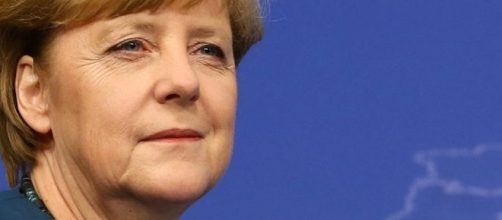As Americans are discovering the results of elections are not always smooth transitions. #Donald Trump’s stormy beginning could be a harbinger for other changes of national leadership in the european union that will determine the future direction of America’s most important ally and therefore for american foreign policy.
French and German elections
The French Republic will go to the first round of its elections on April 23rd with the probable run-off between the two top candidates on May 7th to decide the next occupant of the Élysée Palace. This election will be run with the Socialist Party in disarray due to the unpopularity of sitting President François Hollande who decided not to stand for a second term.
This should have given the centre right Les Républicains Party a chance, but a brewing financial scandal involving new candidate François Fillon could well open the door to far right Marie Le Pen of the Front National Party to reach the run-off as her father did in 2002. Should this occur the two major parties will probably once again back the other candidate to ensure that Le Pen does not win. In any case France like the United States will see a new President in power for the next four years.
In Germany the national elections on September 24 will see sitting Chancellor Angela Merkel of the centre right CDU seeking a fourth term in Office. Her major opponent will be Martin Schulz of the centre left Social Democrat Party, the former President of the European Parliament and therefore a politician with wide and long term experience in foreign policy.
While most experts believe that Merkel will win the election, the growing dissatisfaction with her “open door” migration policy may make the run closer than may have been suspected not so long ago.
European crossroads
The European Union has the real possibility of facing the challenges of the near future with new leaders for its two strongest countries. In addition the possibility that Italy too may face national elections later in the year will add to spice to this uncertain mix.
The changes come in a particularly delicate period for the European Union. The decision by Great Britain to leave the Union will deprive it of one of its major members as it faces the challenges of the waves of migration from the Middle East and Africa that has led to international unease which has fuelled the anti migrant and openly xenophobic groups in the Union such as Le Pen’s Front National in France and Italy’s Lega Nord that contribute to the uncertainty in the election results.
In addition, the increasingly aggressive foreign policy actions of Vladimir Putin’s Russia, including the ongoing problems with the Ukraine following the annexation of Crimea by Russia that led to the international sanctions have become a source of worry for East European member countries of the EU such as Bulgaria that had been under Soviet domination for decades.
The arrival of an inexperienced American President in Donald Trump has added further spice to these problems as his unpredictability and openly “America First” policy raises the possibility that the EU will not be able to count on American backing to the same levels as it has enjoyed over the recent decades.
Identity
This situation may worry some observers, but it could well create the conditions that oblige the European Union to shape its own future and to finally decide its identity and future direction which has often been more reactive than directed.
Americans would do well remember that while their attention is focused on the rocky start to Donald Trump’s Presidency that international politics has not stopped to watch the show from the Oval Office. In fact, the leaks of Donald Trump’s unusual first telephone calls to world leaders, friends and foes alike, indicate that the superpower may not be the prime mover of international politics that it had been with previous Presidents. Time will tell if this is a good or bad thing.

